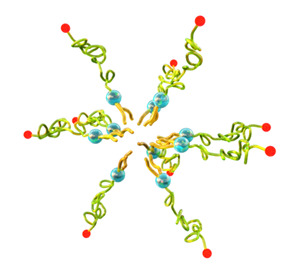Nov 10 2017
While the simplest definition of a “theranostic” nanoparticle is a nanoparticle that merely has a therapeutic moiety and imaging or diagnostic moiety on the same particle, the authors of a review article published in SLAS Technology pay more attention to and highlight the platforms where disease monitoring and self-reporting is possible in real-time because of the synergistic nature of the components present on the theranostic particles.
 Image courtesy of Peter Allen
Image courtesy of Peter Allen
The review is arranged into theranostic nanoparticles of particular diagnostic and imaging modalities, including nuclear imaging, computed tomography (CT), ultrasound, magnetic resonance imaging (MRI), and optical imaging.
The growing nature of the field towards such sensitive and “smart” theranostic nanoparticles can be employed as tools for life sciences researchers, particularly in the context of characterizing cells and diseases and identifying markers over the course of its lifetime.
When detecting small numbers of molecular markers, many clinical imaging technologies have limitations in resolution, but theranostic nanoparticles can be employed in combination to offer early detection and therapy of diseases, and have the potential to improve platforms for superior performance.